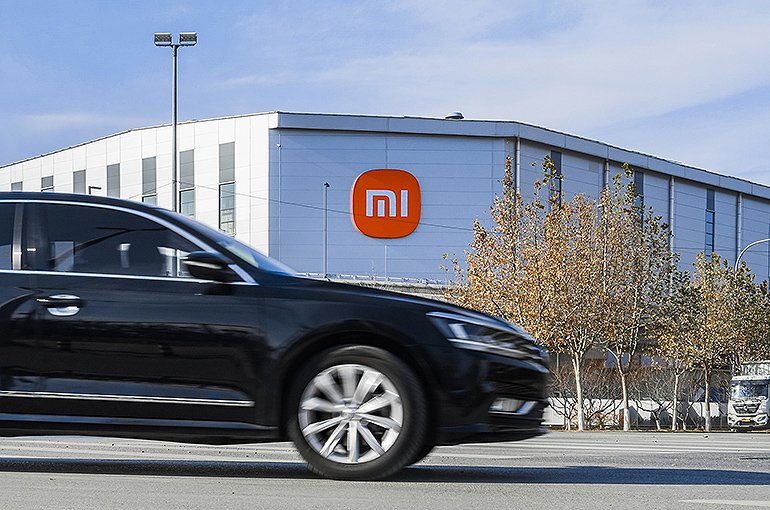 China’s Xiaomi to Make EVs at Own Plant in Beijing, Report Says
China’s Xiaomi to Make EVs at Own Plant in Beijing, Report Says(Yicai) Nov. 16 -- Xiaomi will produce its debut electric vehicles at the Chinese tech giant's own factory in Beijing, according to a media report.
Xiaomi’s EVs will not be manufactured by Chinese state-owned carmaker BAIC Group, The Paper reported yesterday. Particulars from the Ministry of Industry and Information Technology give the production site as 21 Huanjing Road, Beijing Economic-Technological Development Area, which is the address of Xiaomi’s plant, the report said.
Xiaomi did not disclose whether the Beijing-based company has its own car production permit or will borrow BAIC's, according to the report.
The firm’s first EVs, the five-seater Xiaomi SU7 and SU7 Max sedans, appeared in a catalog released yesterday by the MIIT. The monthly catalog, which lists new vehicle models that have passed official tests, been certified, and are about to go to market, showed that the EVs would be made by a unit of BAIC.
Xiaomi should be able to secure a car production permit, but the process takes some time, The Paper cited Zhang Xiang, president of the New Energy Vehicle Technology Research Institute, as saying. The phone titan may first avail itself of BAIC’s licence to get the vehicles rolling off the production line as soon as possible, Zhang added.
The SU7 looks like a cross between a Porsche Taycan and a Tesla Model 3, with both versions having a wheelbase of 3000 millimeters, larger than the Taycan. The models use Contemporary Amperex Technology's ternary lithium-ion batteries and lithium iron phosphate batteries provided by BYD's Ferdi brand, the catalog showed.
Xiaomi’s cars are in pilot production, with 50 samples made per week and a likely annual capacity of 150,000 units in the future, according to earlier institutional research reports.
The handset maker can give full play to the advantages of intelligent interaction between cars and phones, channel operation, and brand promotion, Huatai Securities noted, adding that Xiaomi will likely release its first pure EV in the first half of next year.
Xiaomi’s shares [HKG: 1810] sank 6.5 percent to close at HKD15.70 (USD10.25) in Hong Kong today. The stock finished at HKD16.80 yesterday, its highest closing price this year, after climbing 68 percent since June 23.
Editor: Martin Kadiev